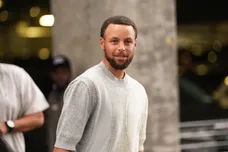Elon Musk has decided to drop Twitter's media labels "State Affiliated" and "Government Funded" after receiving heavy backlash. Media entities such as NPR and PBS vehemently objected to the descriptions. Both networks halted the use of the social network owned by Musk in protest. However, this change has caused much controversy. The labels were designed to limit the spread of state-sponsored propaganda on the Elon Musk-owned social media site. Reportedly, by NPR reporter Bobby Allyn, Musk claimed that the decision to drop the media label was made by Walter Isaacson. Isaacson is working on a book about the Twitter owner.
Furthermore, NPR and PBS have not resumed the use of Twitter since suspending their activity earlier this month. Not only that, Twitter has since removed all "state-affiliated" and "government funded" labels from the site. Not to mention including accounts operated by huge news organizations like BBC, CBC, ABC, and a slew of others. Additionally, Elon Musk has been making more significant changes to the once popular bird app. Twitter recently removed "visibility filtering" restrictions on government accounts. According to NPR, from an ex-Twitter employee, at the direction of Elon Musk, Russia, Iran, and China were the three accounts to have visibility filtering removed.
Elon Musk Faces Backlash For New Changes To Twitter

The restriction was designed to thwart the spread of state-sponsored propaganda from those regimes. Nonetheless, the controversy comes just after Elon Musk greenlit the addition of the new labels to several organizations that previously didn't have such titles. After labeling NPR with such labels NPR said it was suspending Twitter activity. The media sited noted that the label "undermine[s] our credibility by falsely implying that we are not editorially independent." Reportedly, less than 1% of NPR's average annual operating budget comes from federal grants.
The label eradication came Friday the day after Musk revoked thousands of blue checks from a myriad of accounts of celebrities, influencers, and athletes. The move was designed to boost subscription rates and revenue. However, the Tesla tycoon conveniently framed it as democratizing the user-verification process (make it make sense). How do you feel about Twitter in the Elon Musk era? Are you buying a blue check? Let HNHH know in the comments below!







